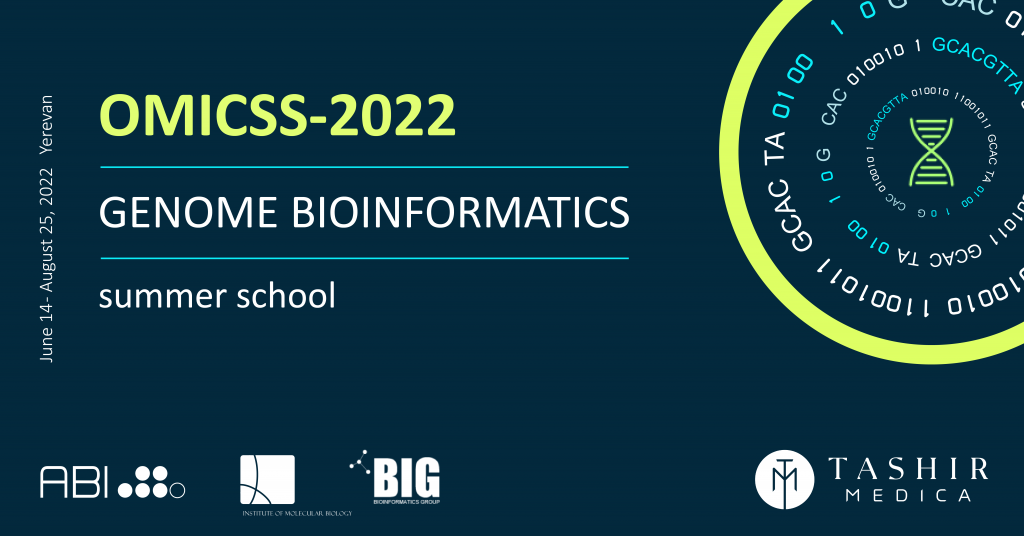
About the school
Contemporary medicine, pharma, and biotech have largely been transformed into data-dependent ventures, where large-scale biological data analysis is the cornerstone of success. Consequently, technologies that have revolutionized bio-related research and industries, such as large-scale sequencing have posed the challenge of having enough specialists able to transform data into knowledge (bioinformaticians). Training specialists in the field of bioinformatics and genomics is thus of tremendous importance to life science research and innovation.
In Armenia, some BSc programs offer courses in bioinformatics and genomics, such as those in the Russian-Armenian University and the American University of Armenia. However, there is a huge knowledge gap that most of the students need to bridge to gain relevant skills to conduct research in bioinformatics. It is a critical problem to meet these needs and prepare a new generation of young bioinformatics researchers. Importantly, there is a huge talent and potential among the students at the undergraduate level, but lack of post-graduate opportunities. And this is the main challenge that the Armenian Bioinformatics Institute (ABI) is solving.
In response to this challenge, ABI in collaboration with the Bioinformatics Group at the Institute of Molecular Biology (IMB) NAS RA is organizing the second summer school in genome bioinformatics: OMICSS-2022. The program envisions recruitment of up to 20 students from biology, math, data, and computer science background to engage them in everyday learning activities and hands-on training exercises. Each student will be associated with an individual ABI mentor and will take the educational resources found in the OMICSS-2021 guide developed by ABI. The students’ learning will be self-paced, at the same time receiving individual guidance from the mentors. The mentors will take into account the background of each student and will shape the self-learning program and the exercises accordingly. In addition, the mentors will facilitate knowledge exchange between peer students with complementary backgrounds (biology versus tech) through frequent meet-ups and peer-to-peer discussions.
Around 40 researchers and biotech industry specialists from Armenia and abroad will join the program to deliver guest lectures and to get to know the students. Ultimately, a few students will be chosen to continue their research under the supervision of the guest scientists.
The school is intended for biologists or data/computer scientists eager to start their journey in bioinformatics and genomics. This school offers a possibility to learn about the role of bioinformatics in research and development in life sciences, and gain the basic knowledge and skills needed to start their first bioinformatics project. The school also provides a unique opportunity to meet scientists from Armenia and abroad who will join with guest lectures and seminars.
Bioinformatics Workshop
In the final month, the students who successfully pass all exams will participate in a week-long bioinformatics workshop outside of Yerevan, where experienced researchers from Armenia and abroad will be invited. During the workshop, the students will conduct short bioinformatics projects, receive mentorship from senior researchers, and will present their results in a final presentation.
This event is sponsored by Tashir MEDICA.
After the School
During the school, the students will gain general knowledge about bioinformatics and will acquire skills enabling them to start their journey in bioinformatics research. They will get to know peers with similar interests and will gain a valuable network that will help them in the initial stages of their careers.
Up to 10 students will be selected after successful completion of the school and the workshop and will become research students at ABI, some will be offered travel opportunities to participate in a 2-month-long bioinformatics school in Sweden, or to get engaged in master’s and bachelor’s projects offered by ABI and other universities in Belgium, Netherlands, US, etc. A limited number of scholarships will be available to support the research activities of those students.
Most of the graduates of OMICSS-2021 school conducted last year are currently involved in research projects at ABI (around 10 students), or other research institutions in Armenia. Around 8 researchers who have provided seminars in the OMICSS-2021 school have been supervising the ABI students throughout the last year. OMICSS-2021 has been the Bing Bang event for ABI, enabling us to exponentially increase the number of young researchers in the field and engage life scientists from the world, and we expect to achieve the same impact with OMICSS-2022.
Program
The program is envisioned to last for 11 weeks (June – August 2022). The following learning outcomes will be met by the end of each week. Depending on the student’s background (biology or data/computer science), they will selectively take each topic at their pace to meet the midterm test requirements. Successful completion of the midterm tests will enable the students to continue their participation in the school.
| Week | Learning outcomes/prerequisites |
|---|---|
| 1-4 | Introduction to programming in R Basics of molecular biology |
| Midterm test #1 and #2 | |
| 5-6 | Statistics: fundamentals Wet lab technologies: PCR, sequencing (3 generations) |
| Midterm test #3 | |
| 7-9 | Linux command line NGS data analysis: algorithms, standard formats, standard tools |
| Final test | |
| 10-11 | Bioinformatics workshop and final projects |
| Project Presentations | |
| Selection of ABI Research Students |
Everyday schedule
All students are required to participate in one-on-one meetings with mentors, as well as office hours and peer-to-peer discussions, and take part in guest lectures. Those who complete all the midterm exams will have the opportunity to continue with the school. In weeks 7 to 9 the students will have the opportunity to gain experience at the wet lab and learn about experimental techniques for the generation of -omics data. These weeks will also be rich with in-person seminars and practical work. The last couple of weeks will be devoted to mini-research projects conducted at the final workshop outside of Yerevan.
Participants will have an opportunity to learn at their own pace. For people that are employed elsewhere, the first half of the day is optional, as the school offers a hybrid learning format, particularly in the first 6 weeks. But they will need to tailor their schedule to be able to participate in the guest lectures, discussions, and experimental hours.
| Time | Activity | |
|---|---|---|
| 11:00-13:00 | Self-learning activities Individual meetings with mentors (30 minutes per student per week) | Optional Mandatory |
| 13:00-14:00 | Lunch break (at the expense of each participant) | Optional |
| 14:00-16:00 | Office hour: asking questions to mentors | Semi-mandatory |
| 16:00-17:00 | Guest lecture | Mandatory |
| 17:00-18:00 | Evening stand-up meeting with students/mentors/project coordinator to quickly discuss each student’s progress/challenges | Mandatory |
| 18:00-19:00 | Peer-to-peer discussions (exchange of complementary skills/knowledge) | Mandatory |
Mentors
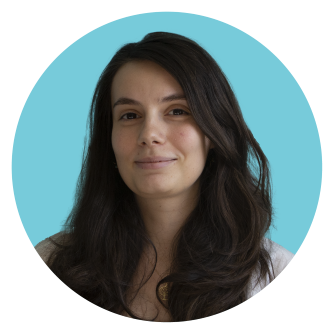
Maria Nikoghosyan
PhD student
BIG IMB NAS RA
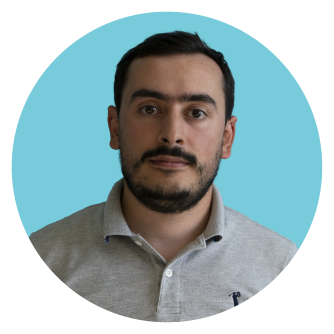
Siras Hakobyan
PhD student
BIG IMB NAS RA
Guest speakers
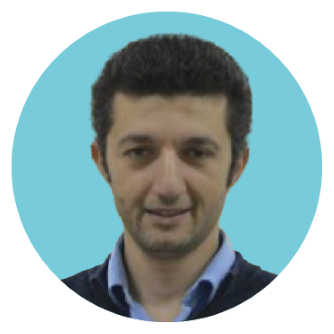
Arsen Arakelyan
ABI, BIG IMB NAS RA
Armenia

Hans Binder
ABI, Leipzig University
Germany
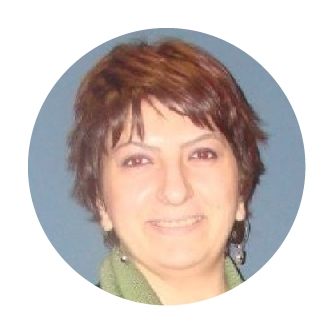
Roza Selimyan
University of Maryland
USA
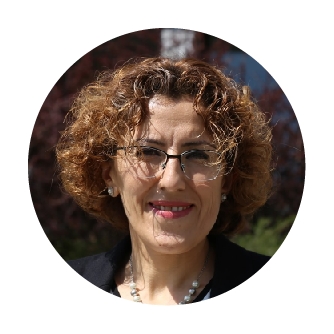
Meri Hovsepyan
Ayb School
Armenia
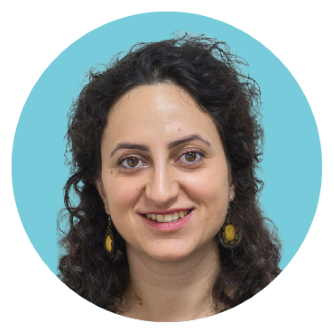
Araks Martirosyan
KU Leuven
Belgium

Aram Adourian
Flagship Pioneering
USA
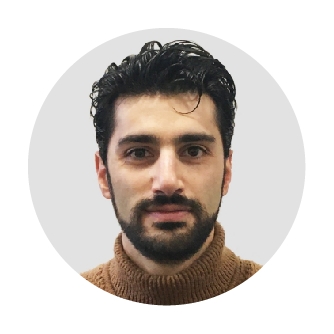
Ashot Margaryan
University of Copenhagen
Denmark
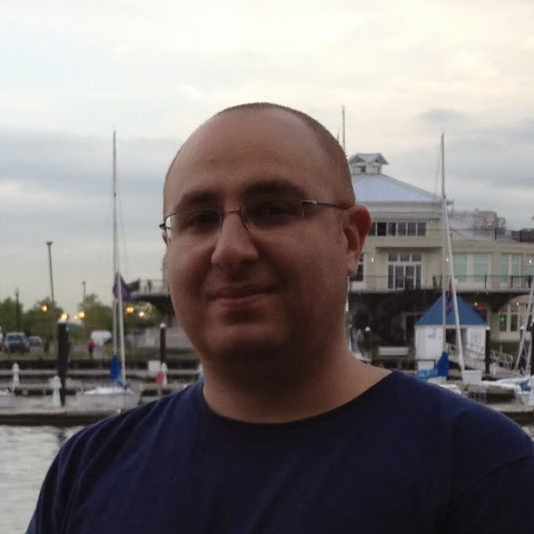
Davit Sargsyan
Janssen PRD (J&J)
USA
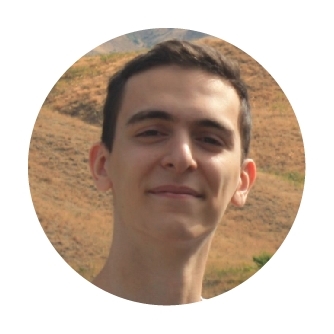
Stepan Nersisyan
Higher School of Economics
Russia
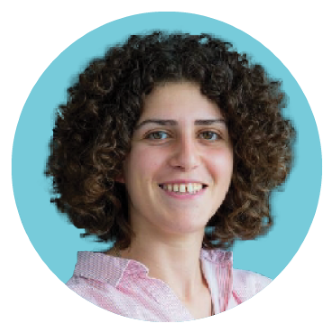
Anna Hakobyan
Max Perutz labs
Austria
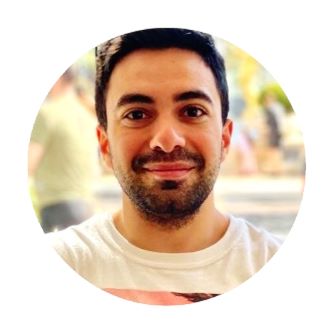
Vardges Tserunyan
University of Southern California
USA
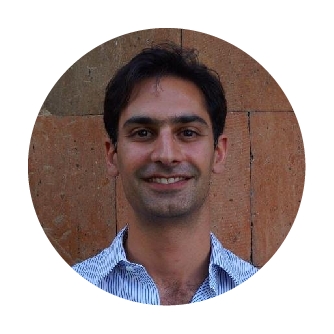
Haig Eskandarian
UCSF
USA
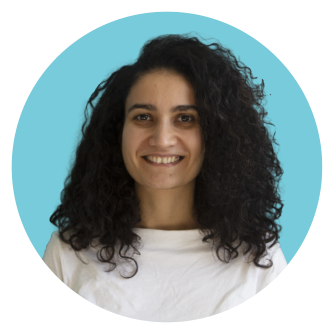
Lilit Nersisyan
Karolinska Institutet
Sweden
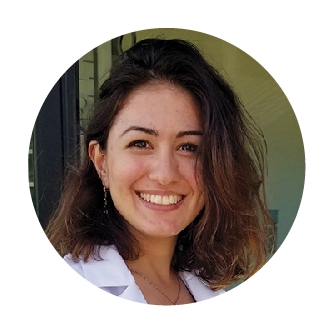
Lilit Grigoryan
Stanford University
USA
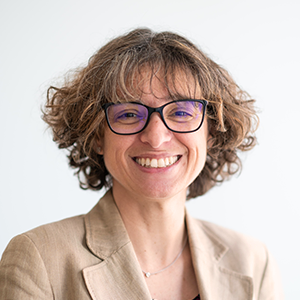
Sandrine Da Cruz
KU Leuven, Belgium

Jonathan Schug
University of Pennsylvania
USA
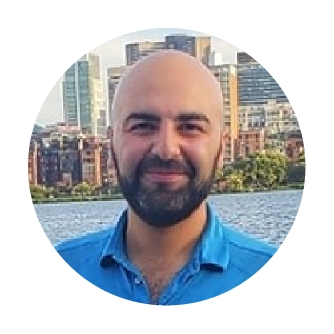
Narek Dshkhunyan
10x Genomics, USA
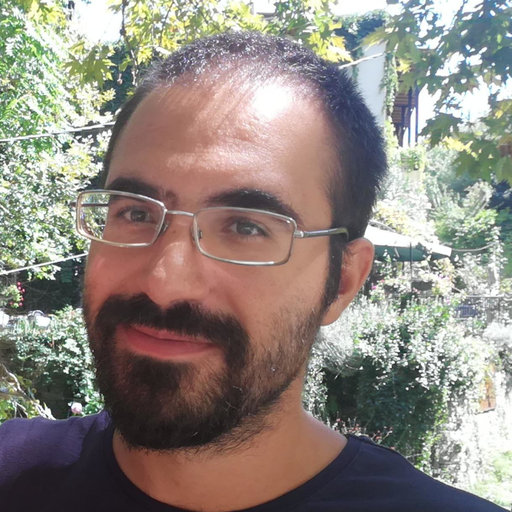
Chrats Melkonian
Wageningen University and Research, The Netherlands
Volunteers
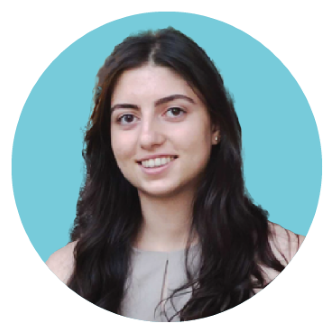
Anush Baloyan
OMICSS-2021 Alumnus, AUA
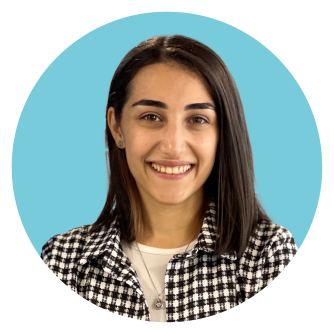
Susanna Avagyan
OMICSS-2021 Alumnus, AUA
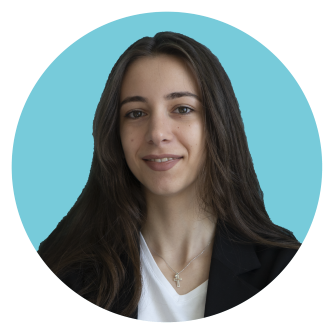
Tatevik Jalatyan
ABI Research Student, AUA
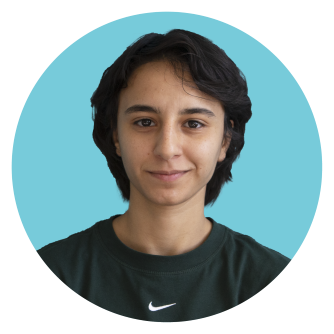
Nelly Vardazaryan
OMICSS-2021 Alumnus, IMB NAS RA

Hripsime Gasoyan
OMICSS-2021 Alumnus, YSU
Who can apply
Students, graduates and young researchers with basic knowledge of biology OR basic programming skills (R, Python, etc.) are welcome to apply. Basic knowledge of English is a prerequisite.
Registration
Registration deadline: 01 June 2022
Interviews: 03 June 2022
Notifications of acceptance: 06 June 2022
Payment deadline: 08 June 2022
Start date: 14 June 2022
End date: 25 August 2022
Registration fee of 10000 AMD should be made via bank transfer. The details will be sent out to accepted participants.
*fee includes: welcome gifts and access to learning materials and resources.
Venue
Institute of Molecular Biology, 7 Ezras Hasratyan Street (Kanaker-Zeytun), Yerevan, Armenia
IMB is located in Kanaker-Zeytun district, 200m to the left of the Mikaelyan Institute of Surgery. Please note, the street name is Ezras Hasratyan street, not to mix it with Grigor Hasratyan street which is located on the other side of the city. Microbuses number 99 and 33 pass right in front of the building.
Organizers
Lilit Nersisyan, Founding Director of ABI, Yerevan, Armenia
Maria Nikoghosyan, IMB NAS, Yerevan, Armenia
Siras Hakobyan, IMB NAS, Yerevan, Armenia
Alisa Hovsepyan, Yerevan, Armenia
Sona Melikjanyan, Yerevan, Armenia
Partners
Official sponsor
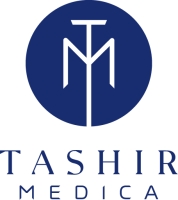
Co-organizers

Contacts
In case of questions, please contact us at [email protected] or call (+374) 93 48 00 33 (Alisa Hovsepyan).
Frequently asked questions
Is there an age range?
Anyone can apply independent of age. However, we would like the participants to have basic programming skills OR basic knowledge of biology. Basic English is also a requirement. Participants will be selected based on their prior experience and motivation to learn.
Can I apply if I also have a job?
Yes. However, please keep in mind that you might need to tweak your schedule so you can participate in the mandatory sessions.
What is the working language of the school?
The learning materials and the majority of guest lectures will be in English. The language of communication with mentors and peers will be Armenian (given all of the participants know Armenian).
I don’t know biology. I only know programming. Can I apply?
Yes, basic knowledge of any programming language (and English) is a sufficient prerequisite to apply.
I don’t know programming. I only know biology. Can I apply?
Yes, basic knowledge of biology (and English) is a sufficient prerequisite to apply.
What opportunities will I have after the school?
The school will give you basic knowledge and skills to start your journey in bioinformatics. You will also get to know several scientists from Armenia and abroad who are looking for students to engage them in their own research. After successful completion of the school, you will have an opportunity to continue conducting research under their mentorship. A limited number of research scholarships will be available to support successful students in their further research.
Should I bring my own laptop?
Yes, you should bring your own laptop. We have a limited number of desktop computers on-site and will provide them to selected participants.
What does the registration fee include?
We provide welcome gifts and access to learning materials. The registration fee is only a one-time payment of 10000 AMD for the whole duration of the school.
Can I become a speaker?
Absolutely! If you are a life scientist willing to contribute your knowledge and skills, or to engage students in your research, you are welcome to join! Contact us at [email protected] and we will be in touch with you shortly.